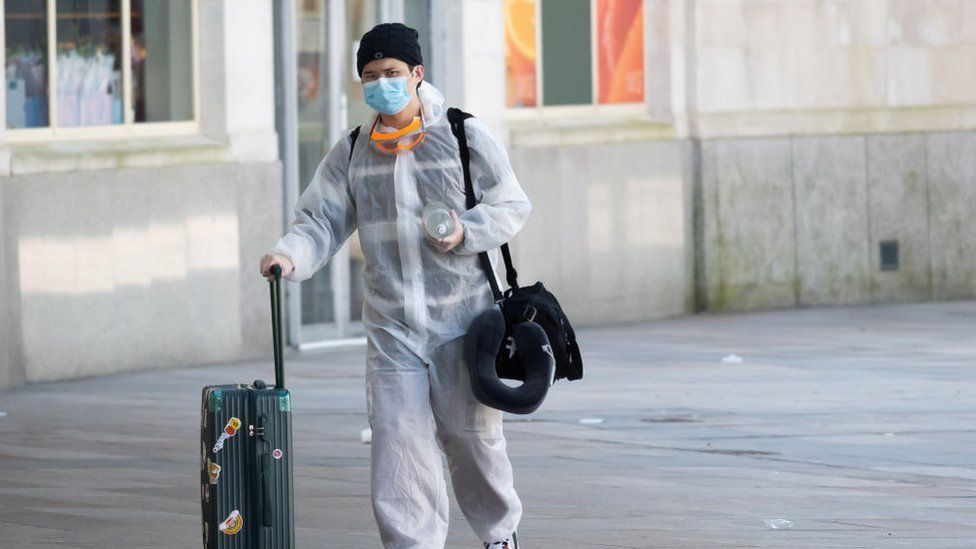
Urgent changes are needed to get people out of cars and back on trains after Covid travel restrictions are eased, campaigners have warned.
Passenger numbers plummeted by about 95% as "non-essential" travel was banned at the height of the pandemic.
Now there are fears people will switch back to cars unless action is taken to make rail more affordable, attractive and address safety fears.
Transport for Wales (TfW) said trains were safe and changes were being made.
Over the past 20 years, the number of people using trains to travel into, out of and across Wales increased by about 80%, with about 31.1 million journeys in 2019, compared to about 16.6 million in 1999-2020.
Commuters have complained of packed carriages, delays and cancellations, while queues were seen outside stations as thousands used trains to get into Cardiff on match and concert days.
In December, during the national "stay at home" lockdown, passenger numbers on services run by TfW dropped to 5-10% of pre-Covid levels and the hit to ticket income led to TfW being nationalised in February, in a bid to keep services running.

In April, after travel bans were lifted, allowing people to travel anywhere in England and Wales, TfW reported a rise in passengers to 20-30% of pre-pandemic levels, with footfall in stations up to 39% by 12 April.
It said had done all it could to keep services going during "challenging times", and the rail service was "adapting" to changes in demand and lifestyle due to Covid-19.
Alexia Course, director of rail operations, said as many moved away from office based 9-5 working, it aimed to make rail a "more attractive option" for day-trips and holidays, and working on new fares and ticketing options.
But transport experts and green campaigners have warned safety messaging about avoiding public transport could have a "lasting impact" and it could take years for passengers to get back on board.
With some of Wales major employers now considering allowing employees to work from home full-time, campaigners fear the rail network will be unsustainable, unless it adapts to people's lifestyle changes, with a knock-on effect for the environment if more of us choose cars over public transport as restrictions are eased.
Peter Kingsbury, of Rail Future Wales, warned getting people back on the trains and out of cars was essential for the "wider good of society".
"Future generations will potentially have a much lower quality of life if we are not able to change our habits over the next decade or two," he said.

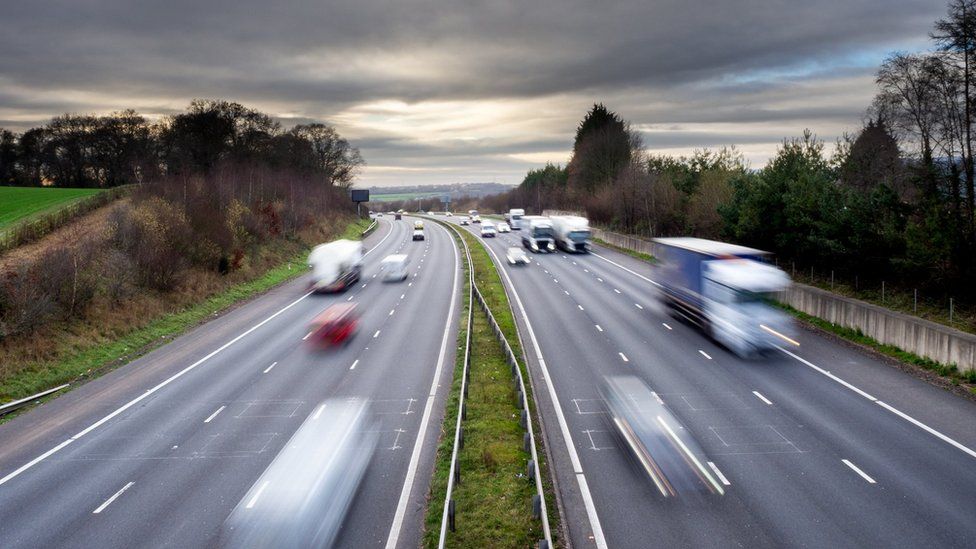
The Welsh government wants 45% of journeys to be made by public transport, walking or cycling by 2040 and all political parties have made promises for more sustainable transport in the run-up to the election.
However, Christine Boston, director of sustainable travel charity Sustrans Cymru, said the rail service must adapt quickly or there was a "real danger" people who previously used trains could switch back to cars.
Figures obtained by BBC Wales show traffic on Welsh roads increased by 62% in the last stay-at-home lockdown, compared with the first lockdown in March 2020, while public transport levels remained comparably low.
With a surge in cycling in lockdown, the charity wants to see cycle routes and train stations joined up, with more space for bikes on trains, in a bid to help people "travel green".
"The fall in passenger numbers risks pushing the cost of travel far beyond the means of many," Ms Boston said.
"Car use has crept back up to pre-pandemic levels, with a real risk of a car-led recovery, which would be devastating for us all."
Norman Baker, of Campaign for Better Transport, said the rise in traffic showed there was an "urgent need" for incentives to get people out of their cars.
"If you don't get people back on trains and buses there will be gridlock on the roads," he warned.
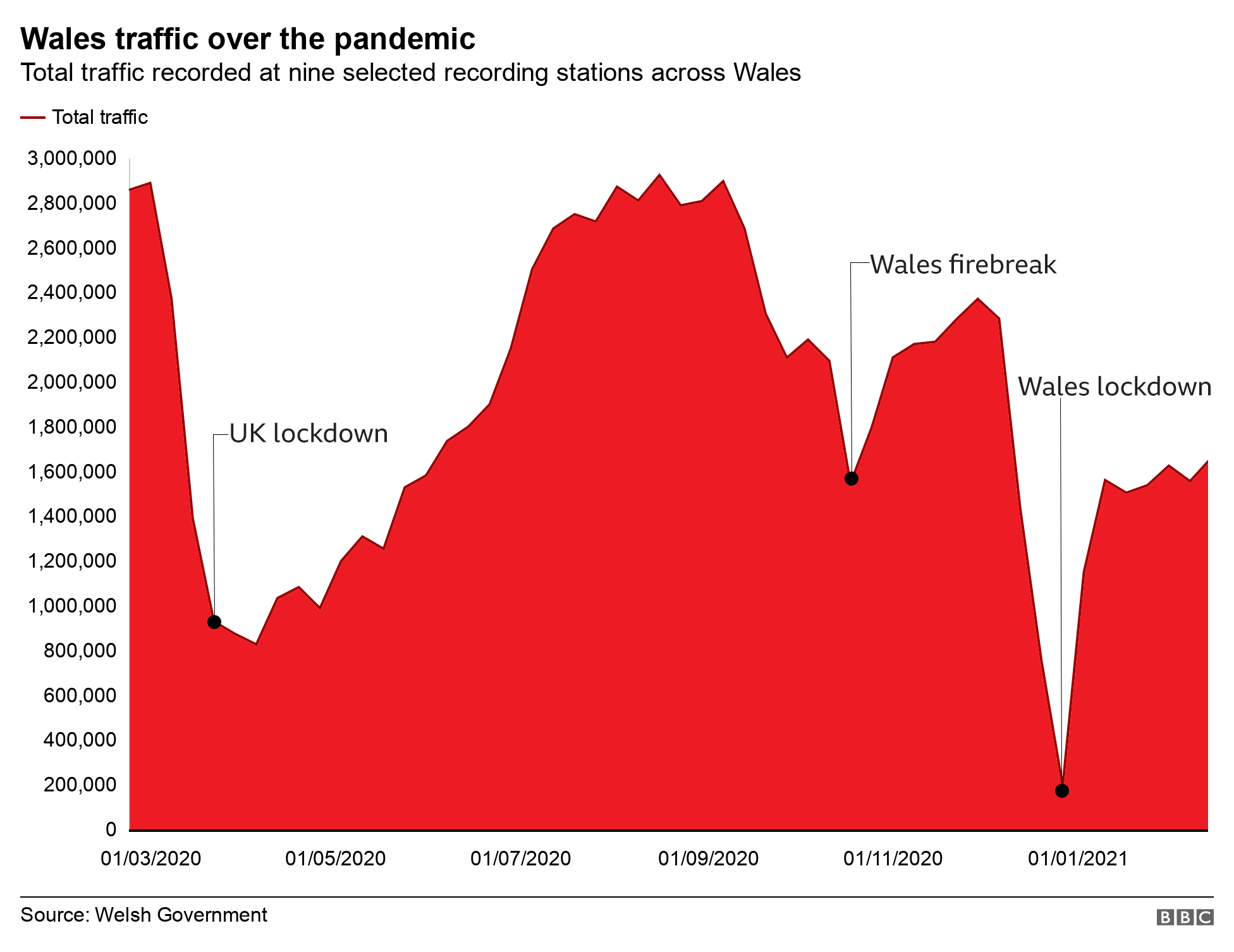
Ms Course said people needed to be reminded of the benefits of travelling by rail, such as enjoying "looking out of the window", reading a book, getting work done and having a cup of coffee while travelling.
"There's a lot you can't get when you're sat behind the wheel of a car and driving to wherever you need to get to," she said.
She said new trains were being built and TfW was looking at how to create more space for bikes.


'No more 9 to 5'
Before the pandemic, many used rail services to commute to work, at times leading to issues with overcrowding on Valleys lines into Cardiff, and other major hubs, at peak times.
Now, with some companies introducing more flexible ways of working, and some announcing home working will continue way into the future, campaigners say rail services must adapt to a very "different working world".
Mr Baker said the days of 9-5 commuting patterns were over and the rail timetable and tickets needed to "reflect a new reality" where more people would travel for leisure.
He said dates for engineering works needed to change, making sure timetables were not limited on a Sunday, when many people would be taking trips.
"Sunday is no longer a day where we can shut the service down, Sunday is a busy day, engineering works should take place on a different time, on a different day," he said.

'Affordability'
Some fares on a number of TfW services increased by 2.6% from March, bringing it in line with a similar increase announced in England in December.
An off-peak return trip from Cardiff Central to London Paddington, on a Monday, costs £113.70, while at peak commuting times, it would cost more than £200, according to one ticketing website.
Mr Kingsbury said there was an urgent need for fare reform to reflect many people would not be commuting five days a week.
He said traditional season tickets - aimed at people who commute at peak times to offices - needed to be replaced with flexible options and was "urgent to bring people back over the next six months".
Ms Course said TfW already had more flexible ticketing, for people to save while working from different locations, but was "looking at other ways we can encourage different types of ticketing" and the UK rail industry to create a new flexible ticket.

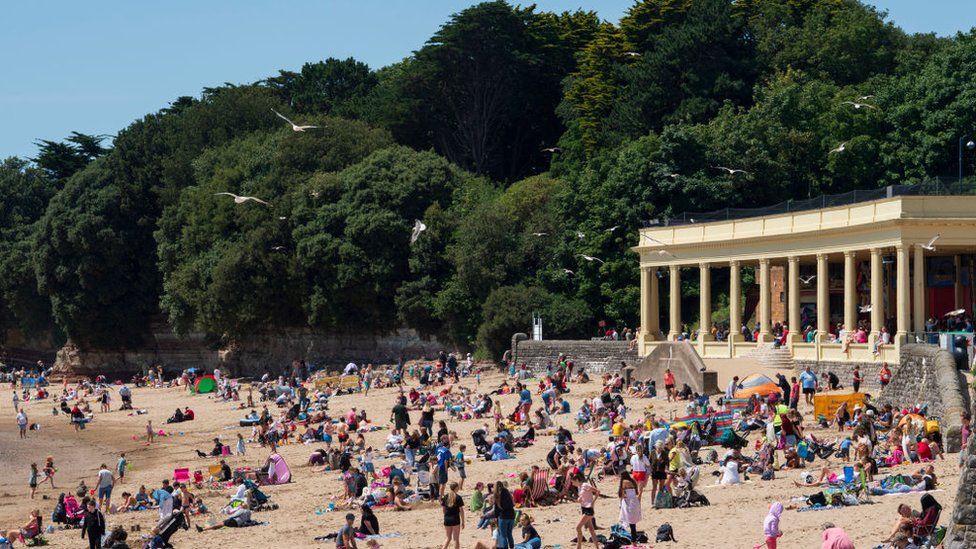
'Cashing in on staycation boom'
With no timeframe for when people can start jetting off on holidays abroad again, many are predicting a staycation boom this year.
Campaigners said it was vital rail services capitalised on increased tourism and encouraged people to use rail to travel for trips this summer.
Mr Kingsbury said the current rail network was "not financially sustainable" and a scheme similar to Eat Out to Help Out could be introduced, with discount fares or even a free journey to get back on board.
Ms Course said TfW was working to promote rail as a more attractive way of travelling across Wales for trips and was working with businesses to "try and tap into customer bases that maybe haven't looked at the railway in the same light previously".
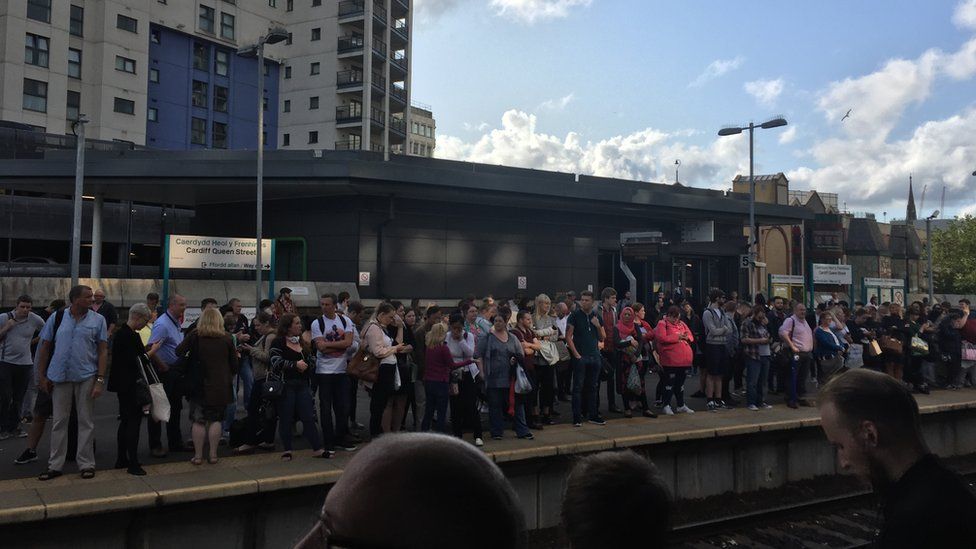
However, there are also fears that people using trains for trips and holidays could lead to overcrowding.
Jeff Smith, of the Shrewsbury to Aberystwyth Rail Passenger Group (SARPA) and a Plaid Cymru town councillor, said he feared the Cambrian line would struggle to cope.
Some services continued to see overcrowding, as people ignored travel rules to head to beaches last summer.
"You are looking at a situation like in the 1970s where you're going to have everyone going to resorts in the UK, so we will have people from Birmingham going to Aberystwyth," said Mr Smith.
Mr Smith said a lack of carriages on the line would mean little space for passengers to stay apart, if passenger numbers increased in the summer.
"If you have an overcrowded train then the social distancing goes out of the window," he said.
Ms Course said new trains were currently being built which would help increase capacity and customer experience, and allow for more frequent services, including on the Cambrian line.
She said dealing with overcrowding would be "challenging", but with fewer people commuting, things did not need to "go back to how things were", while extra support would be put on when major events resumed.

'Safety fears need addressing'
With few people using trains during repeated lockdowns, maintaining social-distancing was fairly easy, and people have been turned away for not wearing masks.
However, campaigners said after months being told not to use public transport and to stay at home, there was a public misperception trains were "unsafe".
Scientists have said the risk of transmission depends on how crowded a train is, and how far away you can stay away from people.
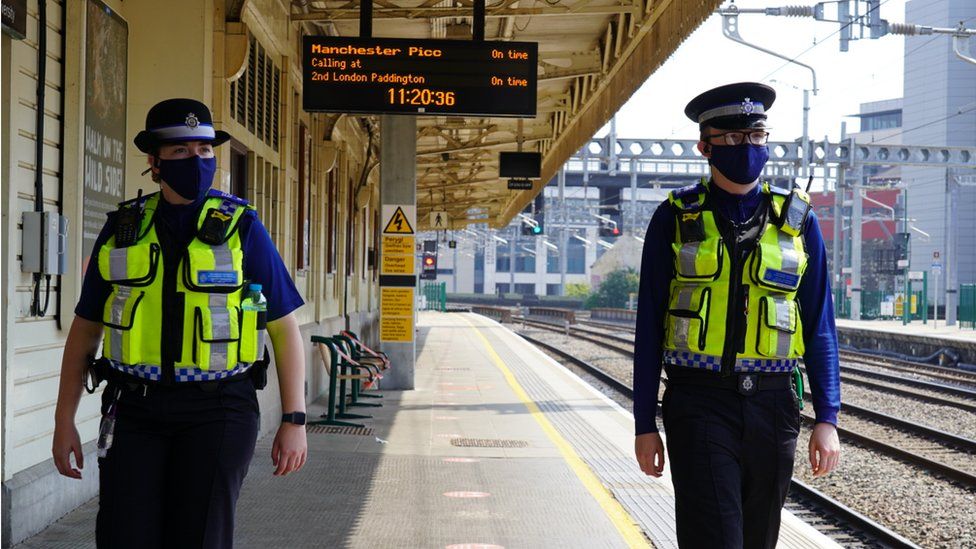
So far this year, 9,348 people have been challenged by British Transport Police and rail staff for not wearing face masks - which are mandatory on trains - with 1,039 people refused travel.
Ms Course said there was no evidence trains were unsafe, with enhanced cleaning and security measures in place, and urged people to use a capacity checker before travelling.
She added that keeping people apart as demand increased would be "challenging", but social distancing was a priority and safety measures would continue.
Mick Lynch, of the RMT trade union, told a recent Senedd committee inquiry there would come a point where social distancing could no longer be maintained on the network: "You will get to your ceiling of 2m social distancing, and any answer to that is to restrict travel or to change the social distancing."
"urgent" - Google News
May 01, 2021 at 04:48AM
https://ift.tt/2QIwPWw
Covid: 'Urgent change' needed to get people back on trains - BBC News
"urgent" - Google News
https://ift.tt/2ya063o
https://ift.tt/3d7MC6X
urgent
Bagikan Berita Ini














0 Response to "Covid: 'Urgent change' needed to get people back on trains - BBC News"
Post a Comment